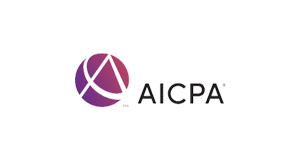In this blog post and companion video, I want to address a question someone posted after watching one of our YouTube videos dealing with Roth conversions.
It’s a question we get fairly often. It has to do with the taxes you have to pay when you do a Roth conversion.
An interesting question!
A viewer named Keith asks:
When people are deciding whether to do Roth conversions, shouldn’t they take into account whether they will live long enough to “earn back” the taxes they’ll have to pay to do those Roth conversions?
For example…let’s say I’m 65 and want to Roth convert the $350,000 balance in my traditional TSP. To do that, I’d have to pay an estimated $84,000 in taxes! My question is: how long would it take for my new Roth IRA balance of $266,000 to grow back to $350,000? Perhaps only five years at 6% compound interest. But what if it took 10 years? In that case, I’d be 75, and what if, during those years, I had a real need for some or all of that $84,000? Don’t I have to factor in the age at which I’ll be doing the conversions and how long I think I’ll live? It just seems like it’s a bit of a crapshoot.
A wrong assumption?
It’s an intriguing question. Keith is essentially saying, “When I do a Roth conversion, I have to pay a lot of taxes, and I watch my account balance drop radically…how long will it take for me to get my retirement balance back to where it was? And if it is going to take a long time to earn it back, does that mean I shouldn’t do any Roth conversions?”
On the surface, the question makes perfect sense. However, I believe it’s based on a wrong assumption. Take Keith’s example. He Roth converts a $350,000 balance and owes $84,000 in taxes.
Stop and think about that for a minute. If you have a $350,000 traditional balance, how much of that balance is truly yours?
Keith seems to be assuming that the full $350,000 belongs to him. However, let’s remember how traditional TSPs and IRAs work. Instead of paying taxes immediately on all your income, you have a portion of each paycheck sent directly to your traditional retirement account, and you defer paying taxes on that money. Hopefully your TSP balance grows over time. But whenever you finally decide to access that money, it’s taxable at your current tax bracket.
A tax obligation
I would argue that the full $350,000 balance in that account doesn’t belong to Keith and never did. Instead, he is holding on to $84,000 of estimated tax dollars that actually belongs to the IRS. His true balance is $266,000, and the IRS’s balance is estimated to be $84,000. That tax portion never was Keith’s. When he talks about possibly having a need for that $84,000, the truth is that that $84,000 wasn’t his to spend. If he took a full $350,000 distribution to go buy something, he would quickly find out that $84,000 of that money isn’t coming to his checking account–it’s going to the IRS.
Okay, but what if you don’t do any Roth conversions and you die? Keith’s question is “If I don’t live long enough to make it worth it, should I even Roth convert at all?” But here’s the truth: Even if Keith dies and leaves that balance to his spouse, guess what? The spouse won’t get the full $350,000 either. Technically, they will get that money, but they will owe the IRS $84,000. And depending on their tax bracket they may even owe more than $84,000!
You can postpone paying taxes, but at some point the IRS will get paid. Well, what if you leave your balance to your children? Do they inherit the full $350,000? Technically, yes, but they also inherit that $84,000 tax liability.
Somebody…somehow…at some point has to pay the IRS their money.
A better perspective
From my perspective, the right question is a two-part mathematical one: When would you prefer to pay the taxes owed on your traditional money, and at what rate?
Do you want to pay now? You can via a Roth conversion. Or would you rather postpone payment until you hit your RMD (required minimum distribution) age of either 72, 73, or 75 depending on the year you were born. At that point, you can’t delay any longer. You’ll have to start paying the IRS their portion.
For me, the issue comes down to: Pay taxes at the lowest rate you can.
Will you get your lowest rate by paying now? Is it going to be paying five years from now? Is it going to be having your heirs pay taxes 25 years from now?
The problem with Keith’s question is that it assumes that the full $350,000 is his. He thinks that if he Roth converts some of his TSP money and has to make a tax payment, he’s lost some of “his” money. He’s trying to calculate how long it might take “to get my money back. And if I can’t get back to $350,000 fast enough in my lifetime, then a Roth conversion is a bad idea.”
This is an erroneous way to frame the argument. You can’t look at the balance in your traditional TSP or IRA and assume it’s all yours. Now, if you have a Roth TSP or a Roth IRA, that’s a different story. That balance is all yours. There’s no IRS tax liability baked into your Roth account because you already paid taxes on that money. But unpaid taxes are part of any traditional account balance.
And so when your account balance goes down in a Roth conversion because you finally paid the taxes you owe, my argument is, “Now, the remaining balance is truly yours. You didn’t lose some of your money; you simply paid the IRS their money.
I really appreciate Keith’s question. Like I said above, we get this question a lot. No wonder! Taxes, tax rates, tax laws–all that can be confusing.
We have other videos about Roth conversions on our Christy Capital YouTube page. Here’s one we recommend often: “Six Roth IRA Mistakes.”
Meanwhile, if you have questions about your Roth conversions or you need help thinking through other financial matters like these, visit our website, christycapital.com. There–in the top right corner of the page–you’ll see a green TALK WITH AN ADVISOR button. Click it, and leave us a short message. We’ll be in touch right away.
At Christy Capital Management, we help clients take the mystery out of retirement. We’d love to help you too.







